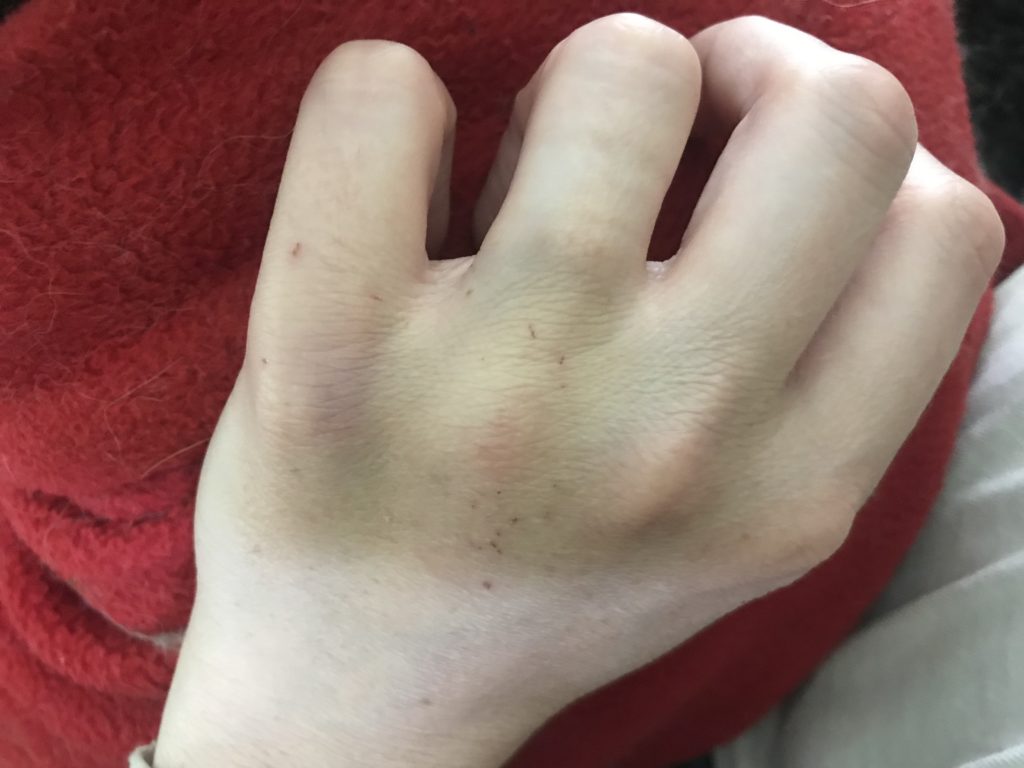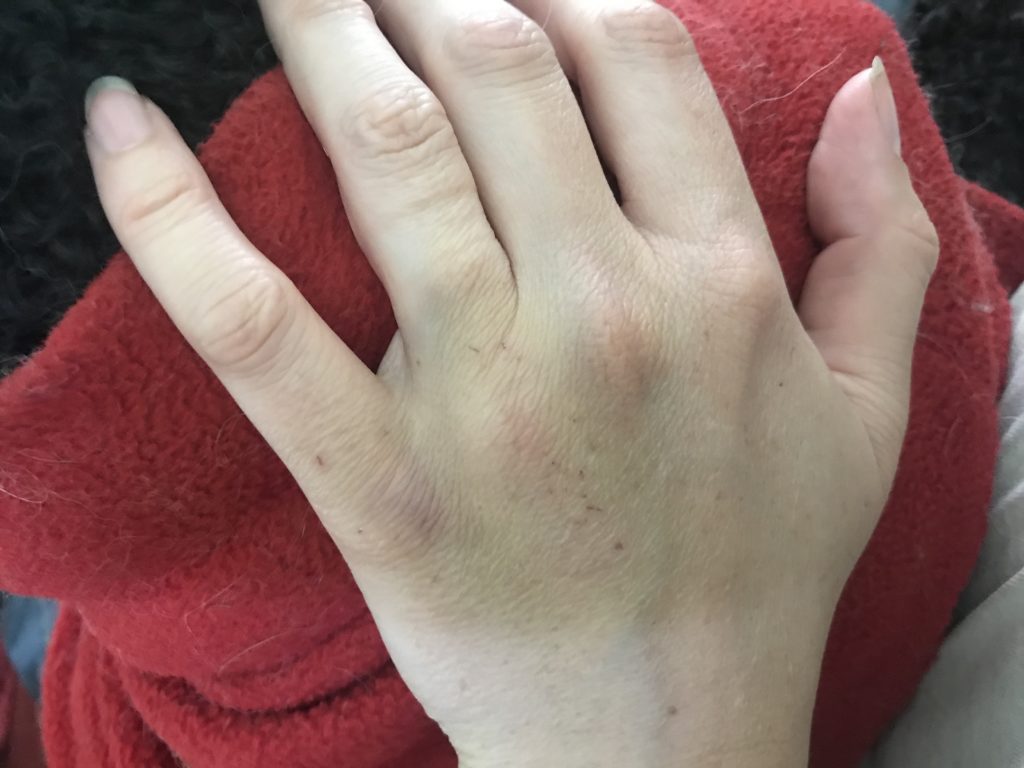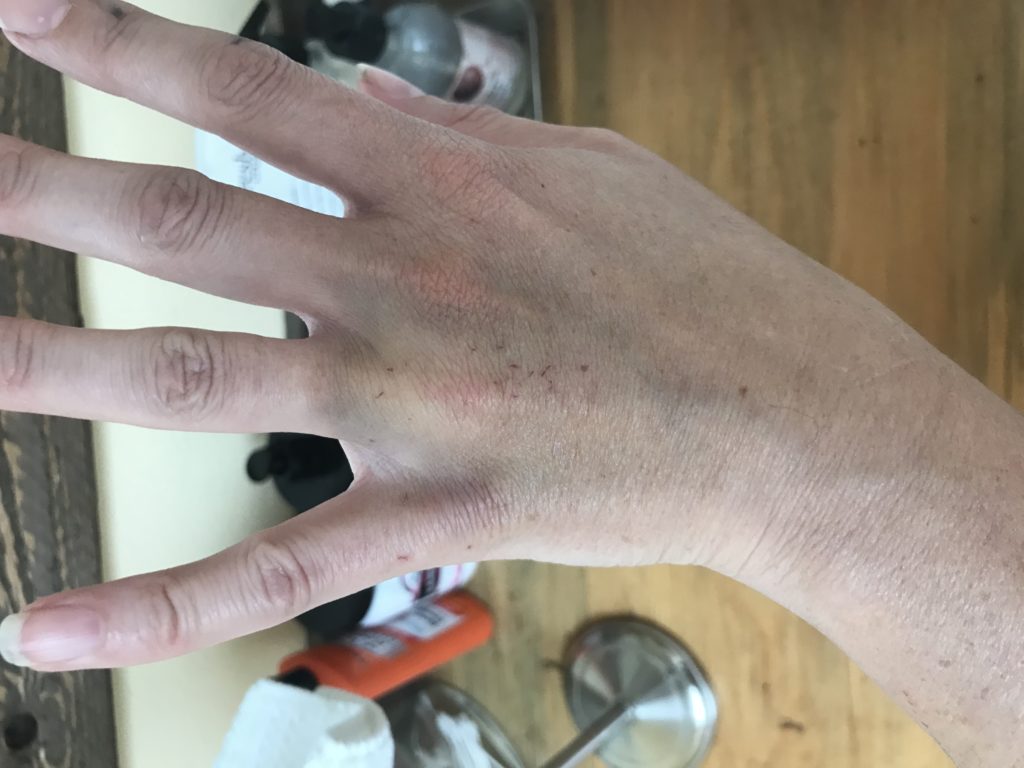Attacking and biting is a costly and risky behavior that most animals will try to avoid. Most snakes are ambush predators. That means they hunt by laying in wait for a prey item to pass by within close enough proximity to catch. They are cold blood and have a very slow metabolism. Chasing down and attacking anything, even food, carries a huge energy cost.
This means that when we keepers get bitten by our snakes it is OUR fault. We have made a mistake in some way that caused the animal to think they should bite us.
There are only two reasons why a snake might bite you:
- Food Motivation
- Defense
Food Motivation
A feeding bite happens when a snake mistakes your hand as food. This can happen due to poor training. There are certain things we often do in captivity that make this more likely to happen. Try to remember that reptiles are food driven rather than emotionally driven. You must give them a chance to understand whether or not it is feeding time before asking them to be social. Tap training give them a clear signal to know what is coming.
Defense
A defensive bite happens when the animal is scared and cornered. Most snakes will choose escape if given the opportunity. Unfortunately when confined to an enclosure there is no escape. We must respect our animals and give them to courtesy of allowing time for them to adjust to our presence. With consistent handling techniques we can communicate with them and help them learn what to expect.
For the record – snake bites really just aren’t that bad. A bite from even a 16 foot long reticulated python, as seen here in this first picture, is less severe than a bite from a dog or a cat.
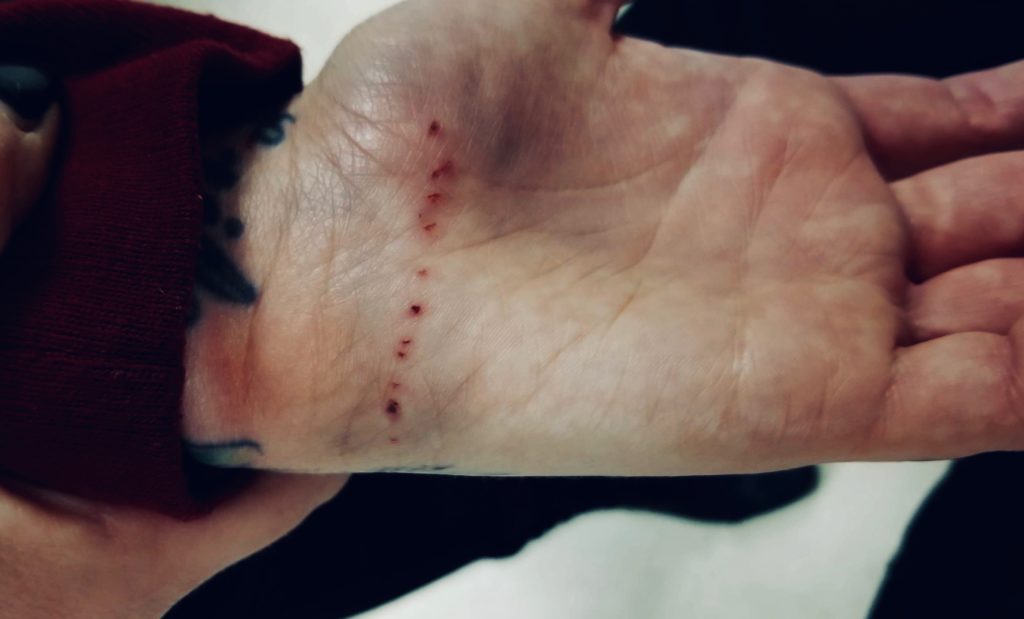
Reticulated Python 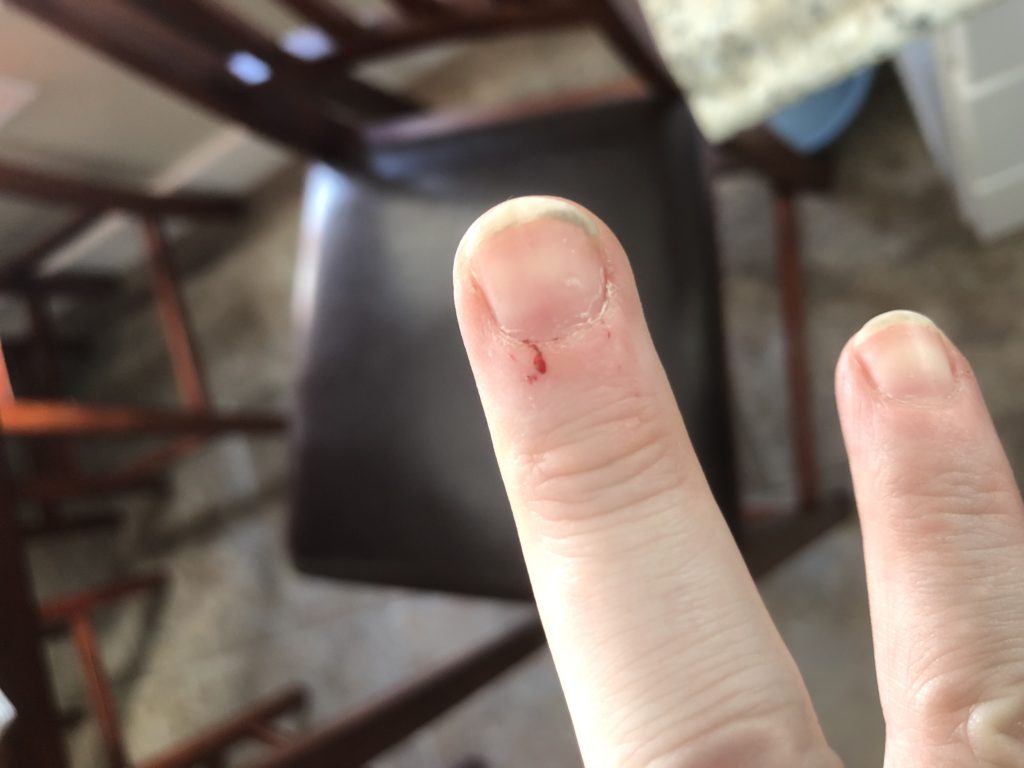
King Snake 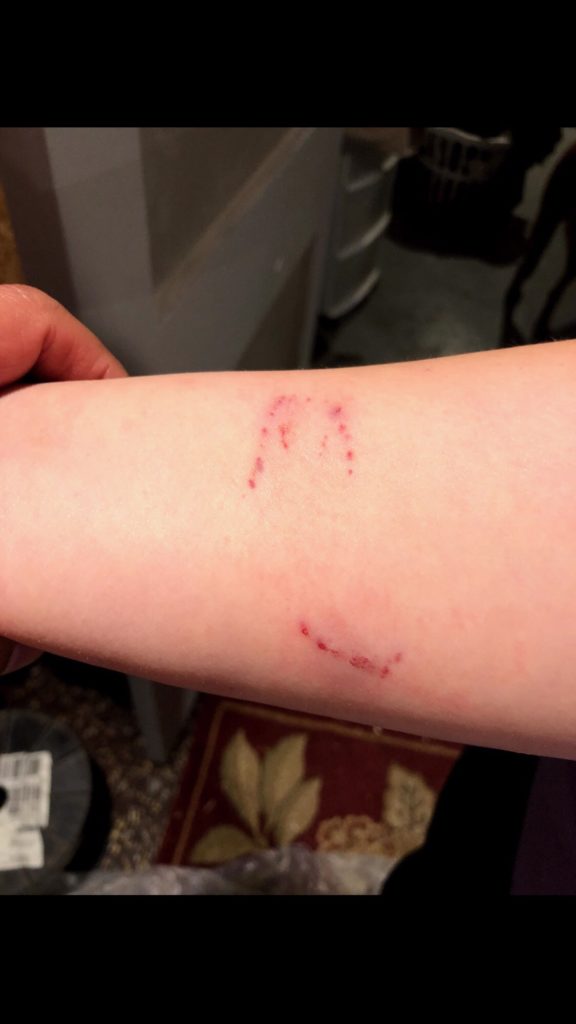
Ball Python
7/15/19
What to do, and what NOT to do, when handling retics:
Time for some brutal honesty here folks! Let’s use my own mistake as a learning opportunity and remember no one is perfect. ❤️🐍
We USUALLY follow pretty strict rules here at Snake Haus when handling the large snakes. These animals do have the potential to cause us injury if we aren’t careful, but our handling rules keep us safe.
During all the hubbub and distractions of managing our booth for the expo this weekend I broke one of my rules and suffered the consequences. The rule I broke was “wash your hands BEFORE you handle the snakes”.
Why before? Washing off the debris and smells of whatever else you’ve been doing that day is an easy way to prevent confusion and stress for your snake. It also helps decrease the risk of spreading disease. Always remember the smell of your other animals, and your own food, can influence your snake’s behavior.
In this case I made the mistake of handling a 2 year old reticulated python after eating a piece of rotisserie chicken. I did not wash my hands before handling her.
Fable is a newer intake that has not gone through my food or hook training yet, and she was kept very “lean” by her previous owner. That means she is REALY hungry and will eat just about anything.
It did not occur to me that rotisserie chicken might smell like food to her. I would never reach into a snake enclosure with the smell of rat rabbit or guinea pig on my hands. Now I know roasted chicken is also a trigger. Duh! 🤦🏻♀️ what a silly mistake!
There are several learning points to this story:
- When handled correctly a bite from one of these animals isn’t really that bad! These pictures show some spectacular bruising but that’s it really. This was a food bite which is when the snake mistakes your hand as food and therefore does not let go. Little Fable chewed on my hand for quite a while before I was able to coax her into letting go willingly. If you do happen to get bit by a retic do NOT panic. Just stay calm, be patient, grit your teeth and wait for them to let go on their own. Pulling or forcing them off of you can cause their teeth to do way more damage to your skin as well as cause pretty serious injury to their mouth. In this case we used a little bit of hand sanitizer to help her realize my hand didn’t taste as good as she thought it would.
- Don’t break the rules! No matter how experienced you are, always remember you’re not perfect and you’re only human. Sooner or later you’ll make a mistake that you might regret. Set yourself a list of clear rules and follow them always. Rules keep us and our animals safe.
- Snake bites are not something to brag about, be proud of, nor be used to show that you’re tough. If you get bitten by a snake it means YOU made a dumb mistake that put your animals at risk! Snakes do not bite out of aggression. They bite either from fear and defense, or because they’ve misunderstood a food item. I caused this bite by forgetting to follow one of my rules and poor Fable is not to be held at fault.
- Learn from your mistakes. If you do happen to get bitten learn what YOU did to cause it and change your behavior for the next time to prevent it.
I hope this was a useful post and that it can help us learn to prevent silly mistakes like this. I suppose you never know what a hungry retic might think is food. I feel so bad that Fable thought she was about to get a super yummy chicken dinner and ended up with hand sanitizer instead. Poor kiddo!
I realize now that of course she would think chicken smelled good! Duh, I feed whole chickens to the bigger retics fairly often. Don’t worry, Fable is fine and now has the fantastic nickname of “Lil Chicken”. I’ll give her a yummy quail for dinner tomorrow and hope she can forgive me for my mistake.
Cheers!


